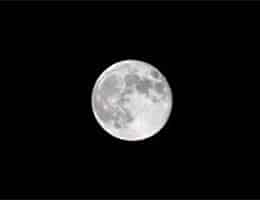 The Latin word influxus came into Spanish as influjo . This is what the act and result of influencing are called: causing an effect , exercising supremacy or predominance.
The Latin word influxus came into Spanish as influjo . This is what the act and result of influencing are called: causing an effect , exercising supremacy or predominance.
Influence, therefore, can be used as a synonym for influence . For example: "My son is not bad, he surely acted under the influence of his cousin" , "The poet spent several weeks under the influence of the muses, writing non-stop" , "You should never drive under the influence of alcohol since "The risk of causing an accident is multiplied."
Take the case of a man who is captured by the police after shooting a neighbor with a revolver. The detainee, caught the day after the events, justified himself by saying that he is addicted to drugs and confessed that at that moment he was under the influence of a substance , without understanding the consequences of his actions. A court, in this framework, must analyze what happened to determine whether the attacker is attributable or not and whether the consumption of narcotics is an aggravating or mitigating factor in his conduct.
A literary critic, on the other hand, maintains that a certain novel had a decisive influence on the culture of a country during the first decades of the 20th century. For this specialist, the book in question achieved such great popularity and managed to generate such a marked impact that millions of people were influenced by the work.
It is common for a language , finally, to be renewed over time due to the influence of other languages. This link causes new terms to emerge and neologisms to be generated.
The term influence does not have a large number of synonyms, at least not in common use in everyday speech. However, we can point out two groups, depending on the nuances we give to their meaning: when we talk about the "influence that someone exerts on another person or on a situation", then we can use ascendancy, imprint and influence ; For its meaning as " dominance over something" there are authority, predominance, power and weight .
 We often hear that the full moon has a certain influence on our lives: from behavior to health , both physical and mental, without leaving aside the number of births, it is believed that the influence of the moon is considerable. Although this may seem like common knowledge , various statistics have shown that a large percentage of doctors and nurses around the world believe that, in fact, the cycle of the moon affects us all.
We often hear that the full moon has a certain influence on our lives: from behavior to health , both physical and mental, without leaving aside the number of births, it is believed that the influence of the moon is considerable. Although this may seem like common knowledge , various statistics have shown that a large percentage of doctors and nurses around the world believe that, in fact, the cycle of the moon affects us all.
Something undeniable is that the moon, and especially the full moon, has always caused us fascination, something that is also reflected in the many fictional stories that it has inspired. The moon has been associated with women's fertility , largely because its cycle and that of menstruation usually last 28 days (although the latter can vary).
Regarding the influence of the full moon on our behavior, many believe that it can make us violent, and this would explain the supposed increase in crimes and accidents during this phase . But what do the detractors of this theory say? In 2012, for example, a study by Professor Geneviève Belleville , from the psychology department at Laval University in Canada, pointed out that such influence of the Earth's satellite on our lives is absolutely false.
To disprove these ancient and popular beliefs, the team of researchers closely studied cases of medical emergencies that occur during full moon nights over three years. Their conclusion suggests that cases of emotional disturbance are due to the predisposition generated by myths related to the moon, and not to its influence itself.
